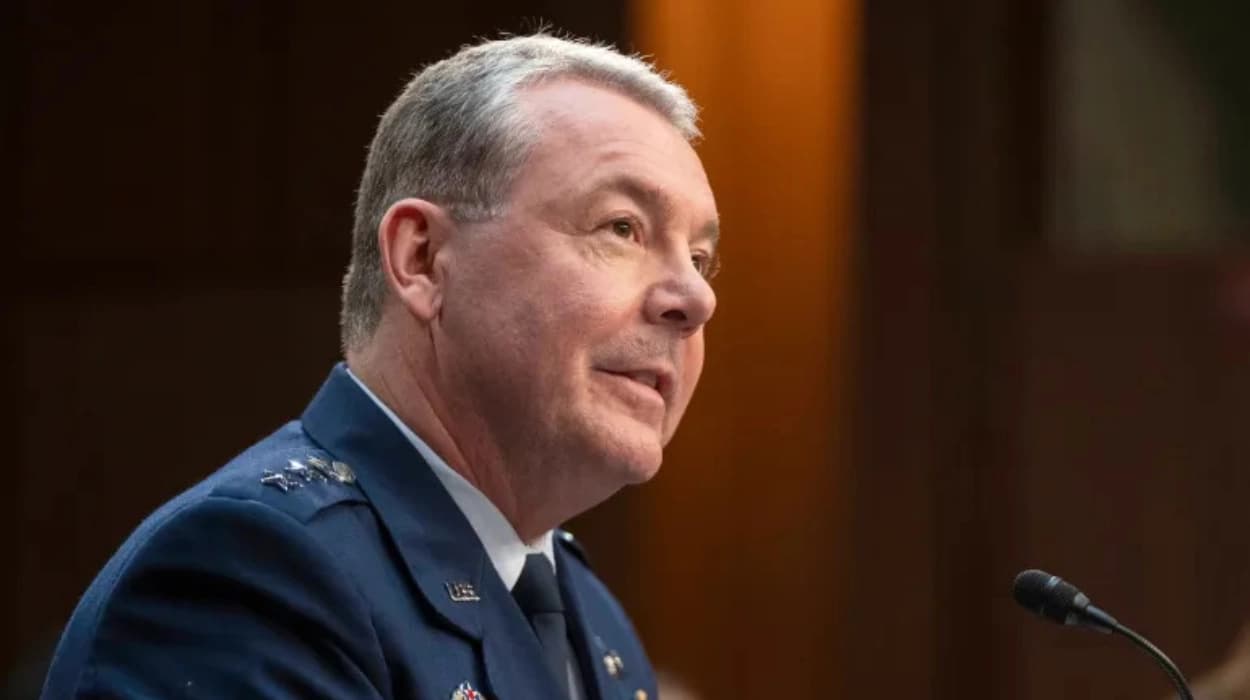The US defense establishment witnessed a significant upheaval in August 2025 when Defense Secretary Pete Hegseth dismissed Lieutenant General Jeffrey Kruse, the head of the Defense Intelligence Agency (DIA). This decision followed the release of a preliminary DIA report on the June strikes against Iranian nuclear sites that contradicted President Donald Trump's claims of total destruction. Kruse's firing, along with removals of other senior military officers, has sparked debates over political influence in intelligence and military assessments.
Background of the DIA Report and Its Impact
The US military operation in June 2025 targeted three Iranian nuclear facilities with an intensity that involved more than 125 aircraft sorties and a guided missile submarine. President Trump publicly hailed the strikes as a "spectacular military success" and claimed the Iranian nuclear sites were utterly "obliterated." However, the Defense Intelligence Agency's preliminary assessment offered a starkly different view, concluding that the strikes only delayed Tehran's nuclear ambitions by a few months—falling short of the president’s assertions.
The DIA report's findings, which gained widespread media coverage, reportedly angered Trump and his administration. Senior defense officials, speaking anonymously, confirmed that Kruse's dismissal was directly linked to the agency's assessment, which was viewed as undermining Trump's narrative. One official said,
"He will no longer serve as DIA director,"
without elaborating further.
This contradiction between political rhetoric and intelligence assessment highlighted the growing tensions between the Pentagon’s professional military analysis and the political leadership's messaging.
The Significance of Jeffrey Kruse’s Role
Lieutenant General Jeffrey Kruse was appointed DIA director in early 2024, bringing extensive experience in military intelligence. Before leading the DIA, Kruse served as the military affairs adviser to the director of national intelligence and held intelligence roles including in the coalition against ISIS. His leadership was marked by his commitment to nonpartisan and fact-based intelligence evaluations.
Kruse’s firing, however, was part of a broader pattern in the Trump administration's handling of senior military and intelligence officials perceived as insufficiently supportive of the administration’s narratives. Earlier in 2025, General Timothy Haugh, director of the National Security Agency, was removed following political pressure. The simultaneous dismissal of two other senior officers—Vice Admiral Nancy Lacore, chief of Navy Reserve, and Rear Admiral Milton Sands, commander of Naval Special Warfare Command—reflects a purge that many critics see as politically motivated.
Reactions and Implications
The purge of high-ranking officials has drawn sharp criticism from lawmakers and analysts concerned about the politicization of intelligence.
Senator Mark Warner of Virginia, senior Democrat on the Senate Intelligence Committee, remarked,
"The dismissal of yet another senior national security figure highlights the Trump administration's troubling tendency to treat intelligence as a test of loyalty instead of a critical resource for our nation."
Warner’s concerns echo a broader fear that intelligence assessments are increasingly being weaponized for political ends rather than objective decision-making.
The Pentagon has remained reticent about providing detailed reasons for these dismissals. However, insiders suggest that the White House was displeased not only with the contents of the report but also with the leak of its findings to the press, which intensified public scrutiny.
Political Context and Trump’s Response
President Trump has consistently maintained a tough stance on Iran, emphasizing the success of US military operations and presenting a firm front internationally. Trump accused the media of attempting to undermine the military achievements by "undermining one of the most successful military strikes in history." This combative posture fits his broader approach of controlling the political narrative around national security.
Following the DIA report leak, the White House characterized the assessment as "flat out wrong" and attributed it to "low intelligence," reflecting a dismissal of professional military evaluations that conflicted with political messaging. Defense Secretary Hegseth also criticized what he called anti-military sentiment in the media, although he acknowledged the challenges posed by leaks.
These developments underscore the fraught relationship between intelligence agencies and political leadership under Trump’s presidency, as well as the pressure on military officials to align assessments with administration claims.
Broader Military and Intelligence Impacts
The Defense Intelligence Agency plays a crucial role in gathering and analyzing intelligence on foreign military capabilities, providing strategic assessments to policymakers and military commanders. Its work impacts decisions on military operations, defense procurement, and threat evaluations.
The firing of DIA leadership at a time of heightened US-Iran tensions raises concerns about operational continuity and morale within intelligence ranks. Critics warn that such dismissals may discourage candid intelligence reporting and encourage a culture of conformity to political expectations.
Additionally, the firings came amid other structural changes, including announced reductions in workforce and budget at the Office of the Director of National Intelligence. These moves have been interpreted as attempts to reshape the intelligence community's functioning and priorities.
Summary of the June Strikes on Iranian Nuclear Sites
The June 2025 airstrikes represented one of the most significant US military actions in the Middle East in recent years. Targeting facilities believed to be central to Iran’s nuclear weapons development, the operation was intended to significantly degrade Tehran’s capabilities and deter future nuclear ambitions.
While Trump and Israeli Prime Minister Benjamin Netanyahu described the operation as a decisive blow, intelligence assessments indicated that the effects were more limited, providing only a temporary setback.
The divergence in assessments illustrates the tension between political messaging and the complex realities of military operations and intelligence gathering.
The dismissal of Lieutenant General Jeffrey Kruse as head of the Defense Intelligence Agency highlights the contentious intersection of intelligence, military operations, and political narratives in the Trump administration. The contrasting views on the effectiveness of US strikes against Iranian nuclear sites exposed a rift that culminated in a high-profile firing, raising questions about the independence and resilience of America's intelligence institutions under political pressure.
These events underscore the challenges facing the US government in balancing transparency, accountability, and political realities in the conduct of national security policy. As tensions with Iran persist, the integrity of intelligence assessments remains crucial to ensuring informed decisions and maintaining strategic stability.

